Are Israel and Hezbollah about to go to war?
As Israel and Hezbollah face off with full vengeance in their sights, this is what we know about the threat of another full-scale war in the Middle East.
Israel launched air strikes into Lebanon, saying it had thwarted a large-scale Hezbollah attack while the Lebanese group said it had carried out its own raid to avenge a top commander’s killing.
The Israeli military said its fighter jets had destroyed thousands of Hezbollah rocket launchers “aimed toward northern Israel and some were aimed toward central Israel.”
The powerful Iran-backed Lebanese group countered that Israel was making “empty claims” of having thwarted an attack, and said its own operation for Sunday “was completed and accomplished”.
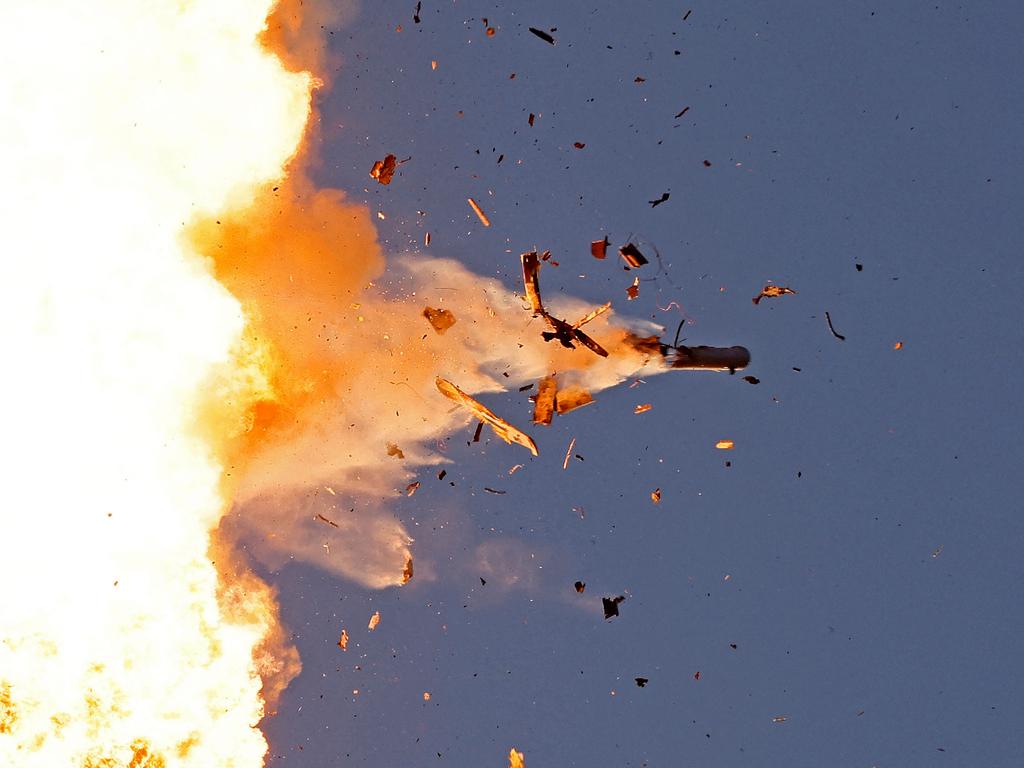
Hezbollah has traded near-daily cross-border fire with Israeli forces throughout the Gaza war, in a campaign Hezbollah says is in support of Palestinian ally Hamas.
It comes as ceasefire and truce talks continue after Iran’s supreme leader recently issued an order for a direct attack on Israel in response to the killing of the Hamas political leader Ismail Haniyeh in Iran.
This is what we know about the threat of another full-scale war in the Middle East.
What does the Israeli fighter jet attack on Lebanon on Sunday mean for the Middle East?
The Israeli Defense Forces prevented a significant attack on Sunday. They destroyed rockets that were aimed at the capital, Tel Aviv, just minutes before they were about to be fired. Any successful attack on Israel would have extended the conflict.
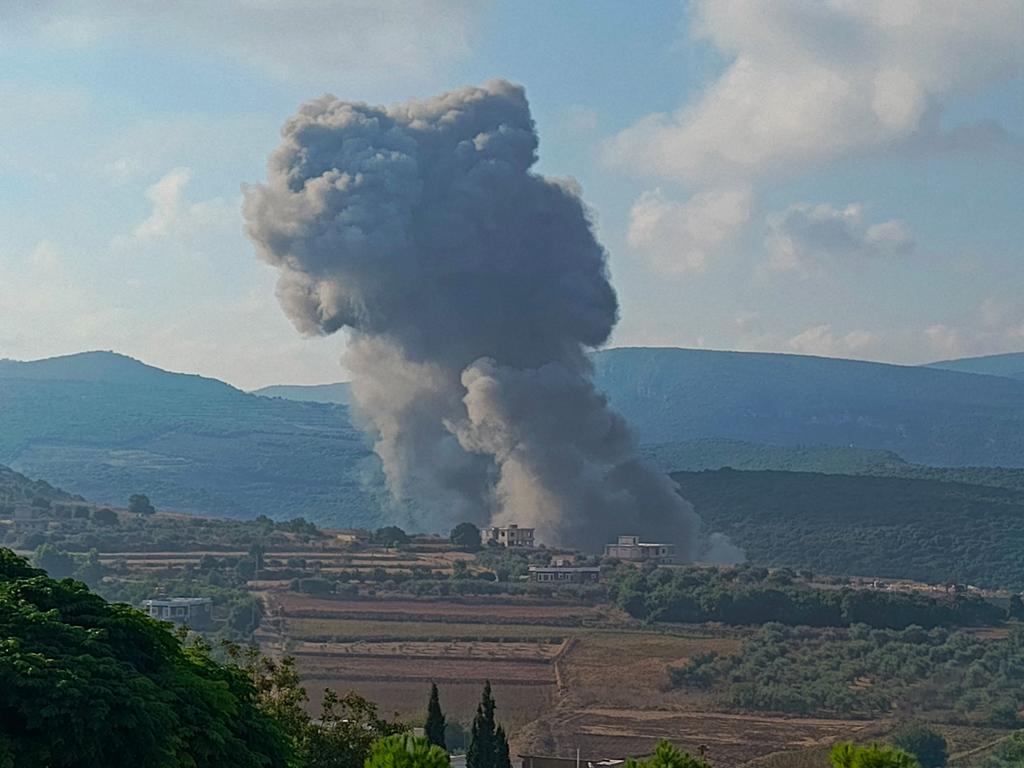
Does the Israeli strikes mean there will be an all out war?
Not necessarily. Israel was quick to play down any suggestions of a full-scale war. Hezbollah, the terrorist group based in Israel, was restrained in its response, finishing its retaliation by 9am local time.
What does this mean for the Israeli Government?
The Israeli strike is a small victory, because any successful attack on Tel Aviv would have prompted a harsh response. But Israel’s government has been battling protests on its handling of the war, with hostages’ families demanding a deal.
What does the weekend’s exchange of fire mean for peace talks?
Mossad chief David Barnea and Shin Bet director Ronen Bar flew to Cairo on Sunday for peace talks. The United States has been pushing hard for a ceasefire, with officials saying last week that nothing further militarily could be achieved in Gaza. The sticking points remain Hamas, which has refused to release Israeli hostages, and who will control the border between Gaza and Egypt.
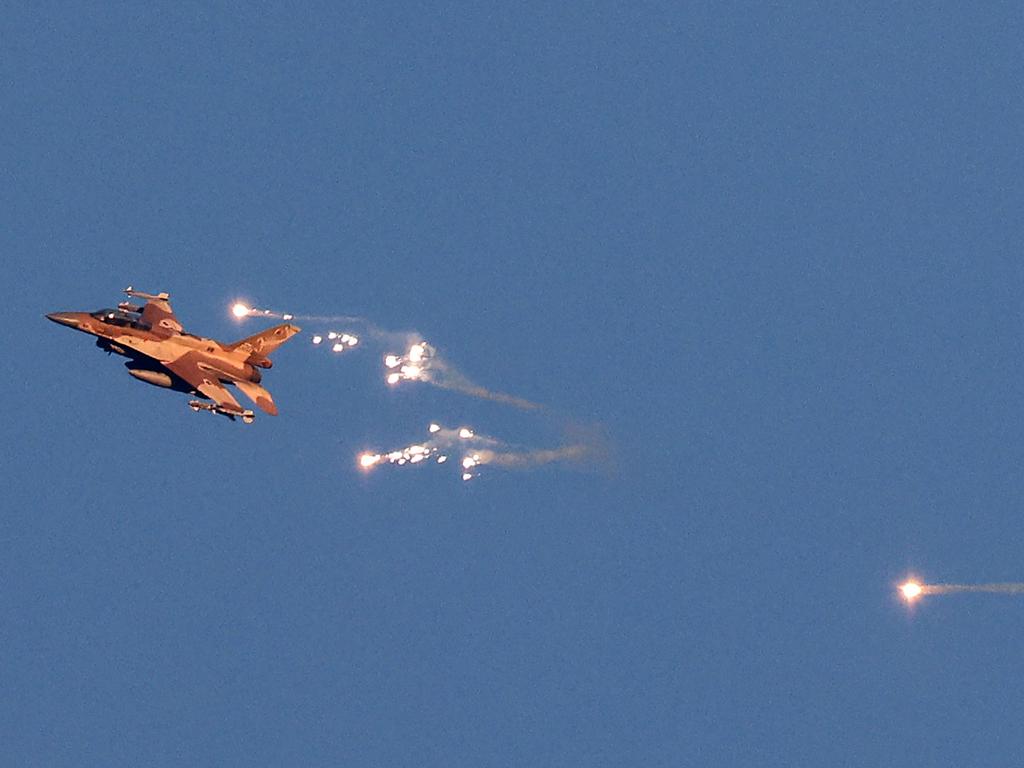
Will the current crisis in Lebanon spark all out war between Iran and Israel?
The Middle East has been a powder keg for decades but Sunday’s Israeli strike comes after a Hezbollah rocket killed 12 children on a football pitch in Israel’s Golan Heights, which lit the fuse.
Israel responded with the assassination of Hamas leader Ismael Haniyeh and Hezbollah leader Fuad Shukr, with strikes in the Lebanese capital Beirut and inside Iran.
The audacious Israeli offensive demonstrated their capabilities and raised the stakes. Any peace deal between Israel and Hamas over the Gaza Strip looks far away now as Haniyeh was a key player in those talks.
Iran’s supreme leader, Ayatollah Ali Khamenei, said that vowed “harsh punishment” for Israel.
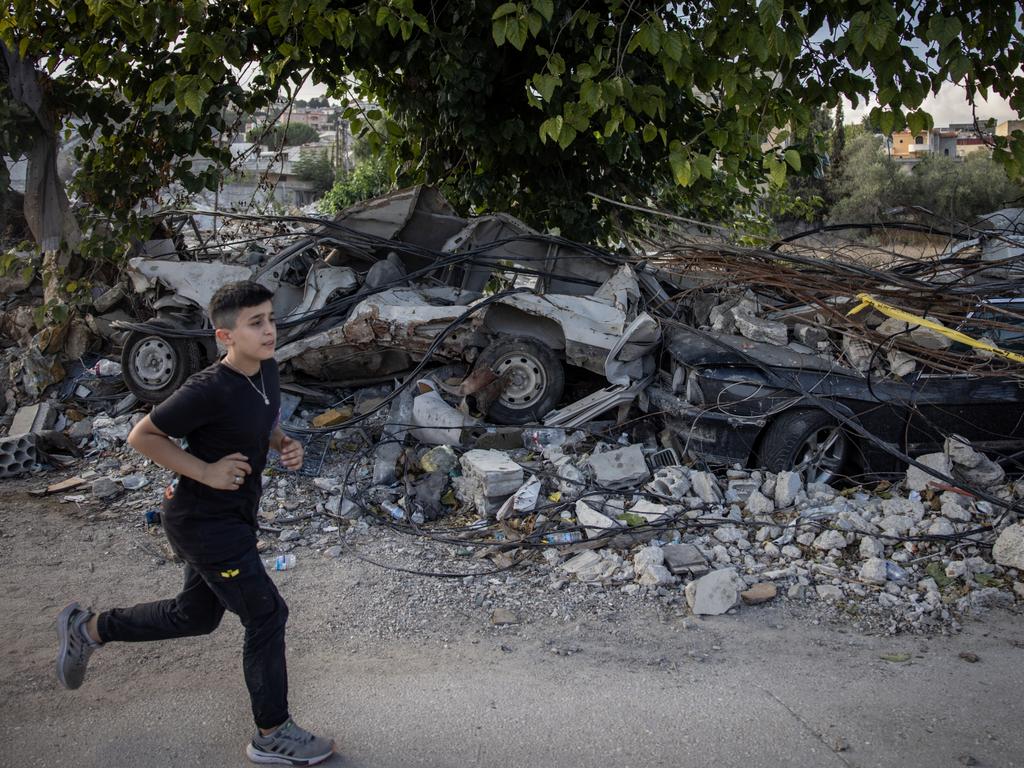
What will Iran do next?
Iran has threatened to avenge the Hamas leader Ismael Haniyeh who was assassinated on their soil.
Direct attacks by Iran on Israeli territory risk raising the stakes even further, but they are not unprecedented. Iran sent at least 10 cruise missiles and 200 drones in an attack on Israel in April, following the deaths of Iranian Islamic Revolutionary Guards who were killed by Israeli strikes in Syria on April 1.
Israel’s Iron Dome defence system shot down the missiles but seven year old Amina al-Hassouni was killed by an Iranian bomb that had hit her home in southern Israel.
It’s likely that Iran would send another wave of bombs, but carefully targeted to avoid risking all-out war.
Iran’s Foreign Minister Hossein Amir-Abdollahian told CNN in April that Iran would not tolerate further attacks.
“In case the Israeli regime embarks on adventurism again and takes action against the interests of Iran, the next response from us will be immediate and at a maximum level,” Mr Amir-Abdollahian said in an interview in New York.
Right now, Iran does not have a nuclear bomb, which reduces some of the tension. There were fears that if Iran did have the capacity to produce a nuclear bomb that they could easily start World War Three.
What does Iran’s arsenal of weapons look like?
What does Israel’s Iron Dome look like and how does it operate?
When did Lebanon attack Israel?
The tensions between Lebanon and Israel started at the beginning of the Israeli state in 1948. Lebanese forces, in an alliance with other Arab nations, fought the setting up of the Jewish state, which occurred at the end of the British rule of Palestine.
The war raged for a year, before a peace deal in 1949. As many as 100,000 Palestinians fled to Lebanon around that time. Decades of tensions have followed as the Palestinian Liberation Organisation (PLO) moved its base to Lebanon.
Should Australians travel to Lebanon?
Anthony Albanese said there are “thousands” of Australian citizens still in Lebanon and they should come home to Australia.
“We have a very clear statement that has been issued through the Department of Foreign Affairs and Trade and for those Australians that are overseas, they should take the opportunity to come home to Australia,” the Prime Minister said.
“There is a risk that the Beirut airport might not be open for commercial flights and given the numbers of people that are there, there is no guarantee that people will be able to come home through other means if that airport is shut.
“We say to people, listen to the warnings which are there and please, over recent months we have seen people continue to go and travel to the region and we have made very clear our warnings about that.”
There are as many as 30,000 Australians currently in Lebanon.
“Australians in Lebanon should leave immediately while commercial flights remain available,” the Department of Foreign Affairs and Trade’s Smart Traveller website warns.
“The security situation could deteriorate rapidly throughout Lebanon with little or no notice.”
Australians have also been told that Beirut Airport could close suddenly.
“Some airlines have postponed or cancelled some flights. Further flight cancellations and disruptions could occur with little or no notice,” DFAT said.
The issue creates a dilemma for many Australians who have relatives in Lebanon.
There are at least 250,000 Australians with Lebanese ancestry, according to the 2021 Census, but that number was expected to be significantly higher.
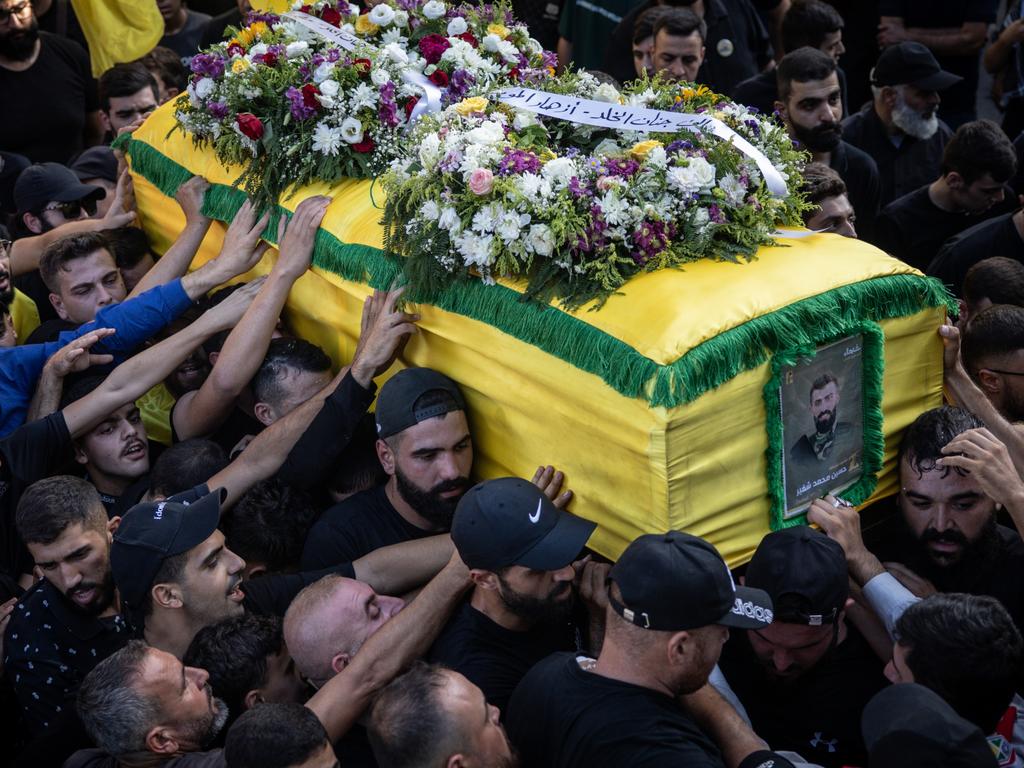
Should Australians travel to Iran?
Iran used to be a stop over on the way to Europe for Australians in the 1970s but it is definitely a no-go zone now.
University of Melbourne academic Kylie Moore-Gilbert was jailed in Iran for 804 days on trumped up spying charges before she was released in November 2020.
DFAT continues to list Iran as a “do not travel” country.
“Terrorist attacks could happen anywhere in Iran, including Tehran or other locations frequented by foreigners and tourists,” the Smart Traveller website said. ‘Regional tensions are high, and the security environment could deteriorate with little or no notice.”
Why did Israel become involved in the civil war in Lebanon?
The Lebanese Civil War started in 1975 as conflict between the Maronite Christian groups, Sunni Muslims and Shia Muslims reached breaking point.
The Christian groups had been in positions of power following French rule of Lebanon, but the migration of Palestinian Muslims into Lebanon following the creation of the Israel state changed the country’s demographics.
Israel supported the South Lebanese Army in 1978 when it was fighting for the rights of minority Christian groups.
The conflict widened in 1982 when Israeli forces, following a series of attacks on its border, invaded southern Lebanon, with forces reaching Beirut.
The war began in June 1982, but the United States brokered a peace deal in August that year. A peace treaty agreed in 1983 failed when the Lebanese Army collapsed, leading to a wider civil war as former soldiers splintered into militias. A peace deal disarmed Lebanese militias in 1990, except for Hezbollah.
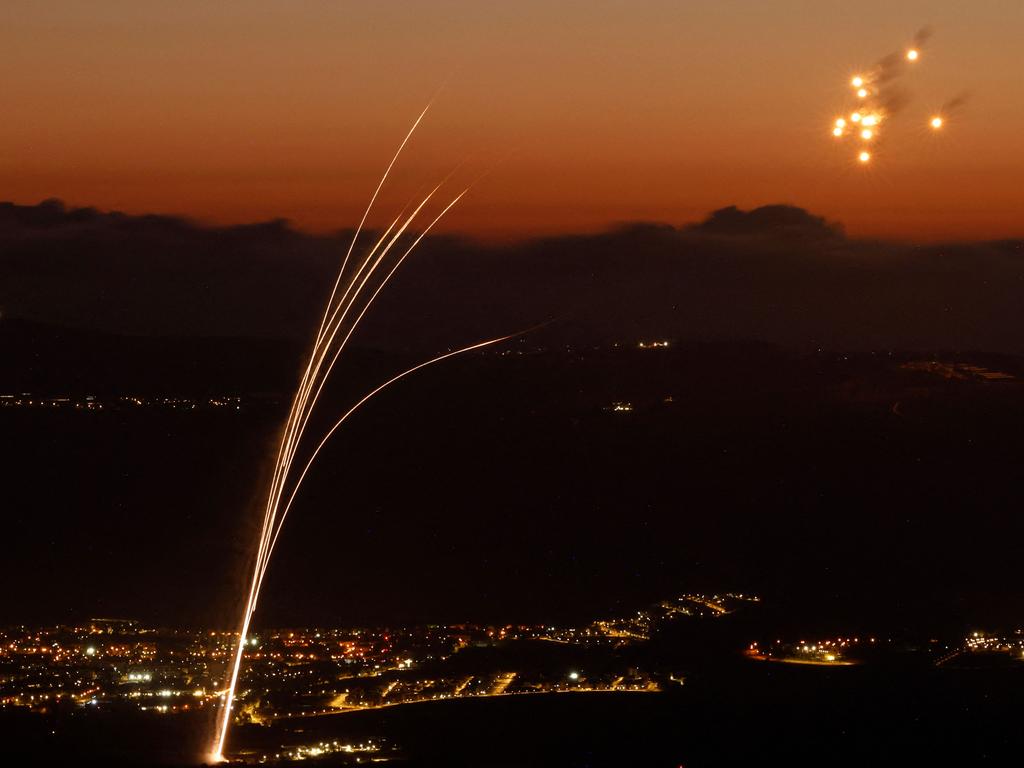
Is Golan Heights Israel or Palestine?
Israel has controlled the Golan Heights since the Six-Day War in 1967. They captured the territory in what was previously the south west corner of Syria, along with Old Jerusalem city and the Gaza Strip. Golan Heights is bordered by the Sea of Galilee and was considered a strategic point. Israel annexed the area in 1981.
Where is Hezbollah located in Lebanon?
Hezbollah, which is supplied with weapons, logistics and money by Iran, controls major parts of Lebanon’s southern border with Israel.
It has used that base to carry out terror attacks for decades, as well as rocket blasts into Israeli territory.
The group has a power base among Sunni Muslims in parts of Beirut. It has set up a political party in Lebanon and provides cash handouts to locals to garner support. It’s backer, Iran, are Shia Muslims, but they have put aside that difference because of their attempts to destabilise Israel.
What was Israel before 1948?
The land where Israel was created was formerly part of the Ottoman Empire, which collapsed after its defeat in World War One.
Britain ruled the area until 1947 when the United Nations declared it would become a Jewish state. However, the boundaries were not clearly defined and have been disputed for decades, leading to bloodshed and ongoing tensions.
Israel had a population surge following the fall of the Soviet Union, with Russian Jews adding at least 1 million people to its population of 10 million.





